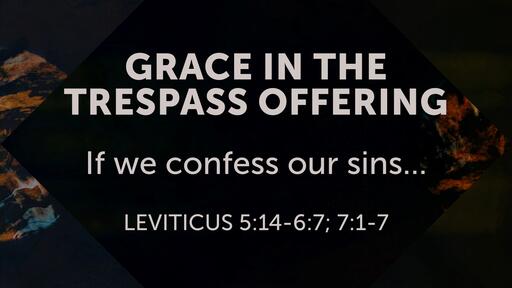Grace in the Trespass Offering - Sep. 19th, 2021

Pastor Walker explains the trespass offering's role to bring about restoration to one who has sinned against another, and its fulfillment by the death of Jesus Christ.
Introduction:
I. Out of Bounds: Some Things the Lord Calls Foul
A. Ignorance of What Belongs to God
B. Ignorance of the Law He Has Given
C. Intentional Deception & Violence for Self-Gain
II. Getting Back In-Bounds: Pathway to Peace
A. A Guilty Conscience
C̵ONVIC̵´TION, n. The act of proving, finding or determining to be guilty of an offense charged against a person before a legal tribunal; as by confession, by the verdict of a jury, or by the sentence of other tribunal, as in the summary convictions before commissioners of the revenue.
2. The act of convincing, or compelling one to admit the truth of a charge; the act of convincing of sin or sinfulness; the state of being convinced or convicted by conscience; the state of being sensible of guilt; as, the convictions of a sinner may be temporary, or lasting and efficacious. By conviction, a sinner is brought to repentance. Men often sin against the conviction of their own consciences.
3. The act of convincing of error; confutation; the act of compelling one to acknowledge his error, or the truth of what is alledged; as, the conviction of a heretic may induce him to abandon his errors.